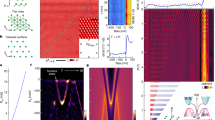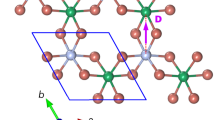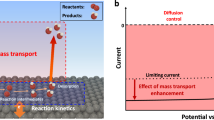Abstract
IT is well known that the principal metals which show the phenomena of passivity are chromium, manganese, iron, cobalt and nickel. These elements have this in common that they form divalent ions, and that while possessing electrons, on Bohr's theory, in the 4th-quantum orbit, their 3rd-quantum orbits are incomplete. My view is that these elements when in the active state have each two electrons in the 4th-quantum orbit, and that they become passive when one of these electrons is removed to a 3rd-quantum orbit. This implies that the usual chemical and physical agencies which make an active metal passive or a passive one active, merely, in some way, induce these electronic changes. It is for the physicists to say if this be possible. There is, however, no a priori objection to this view since transitions between 3rd- and 4th - quantum orbits of these elements are known to occur readily. I do not suppose a suggestion of this kind will explain the whole of the phenomena of passivity, which is admittedly complex, but I offer it as a contribution towards the explanation of the more obvious phenomena.
This is a preview of subscription content, access via your institution
Access options
Subscribe to this journal
Receive 51 print issues and online access
$199.00 per year
only $3.90 per issue
Buy this article
- Purchase on Springer Link
- Instant access to full article PDF
Prices may be subject to local taxes which are calculated during checkout
Similar content being viewed by others
Author information
Authors and Affiliations
Rights and permissions
About this article
Cite this article
RUSSELL, A. Passivity of Iron and other Metals. Nature 115, 455–456 (1925). https://doi.org/10.1038/115455b0
Issue Date:
DOI: https://doi.org/10.1038/115455b0
Comments
By submitting a comment you agree to abide by our Terms and Community Guidelines. If you find something abusive or that does not comply with our terms or guidelines please flag it as inappropriate.



